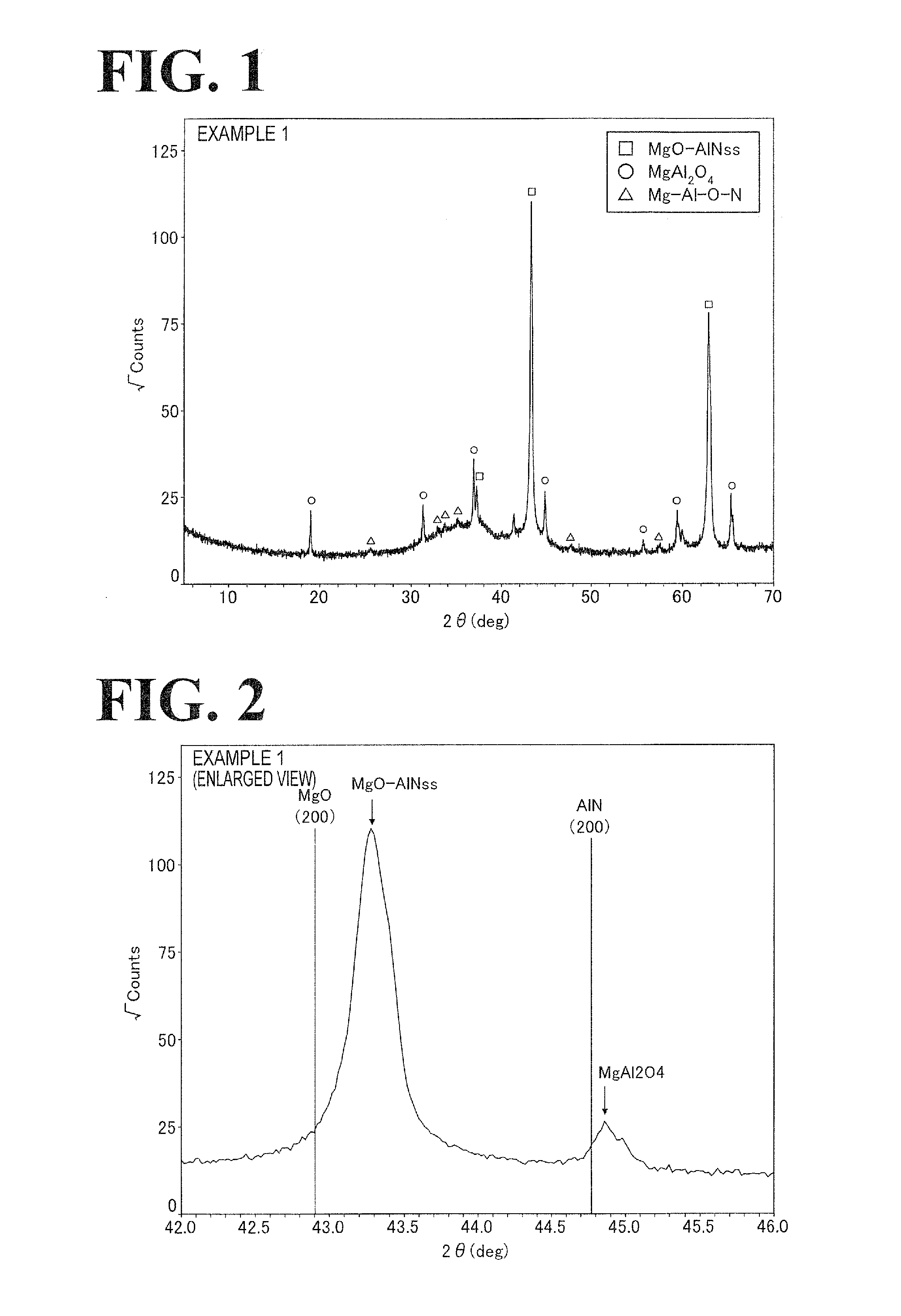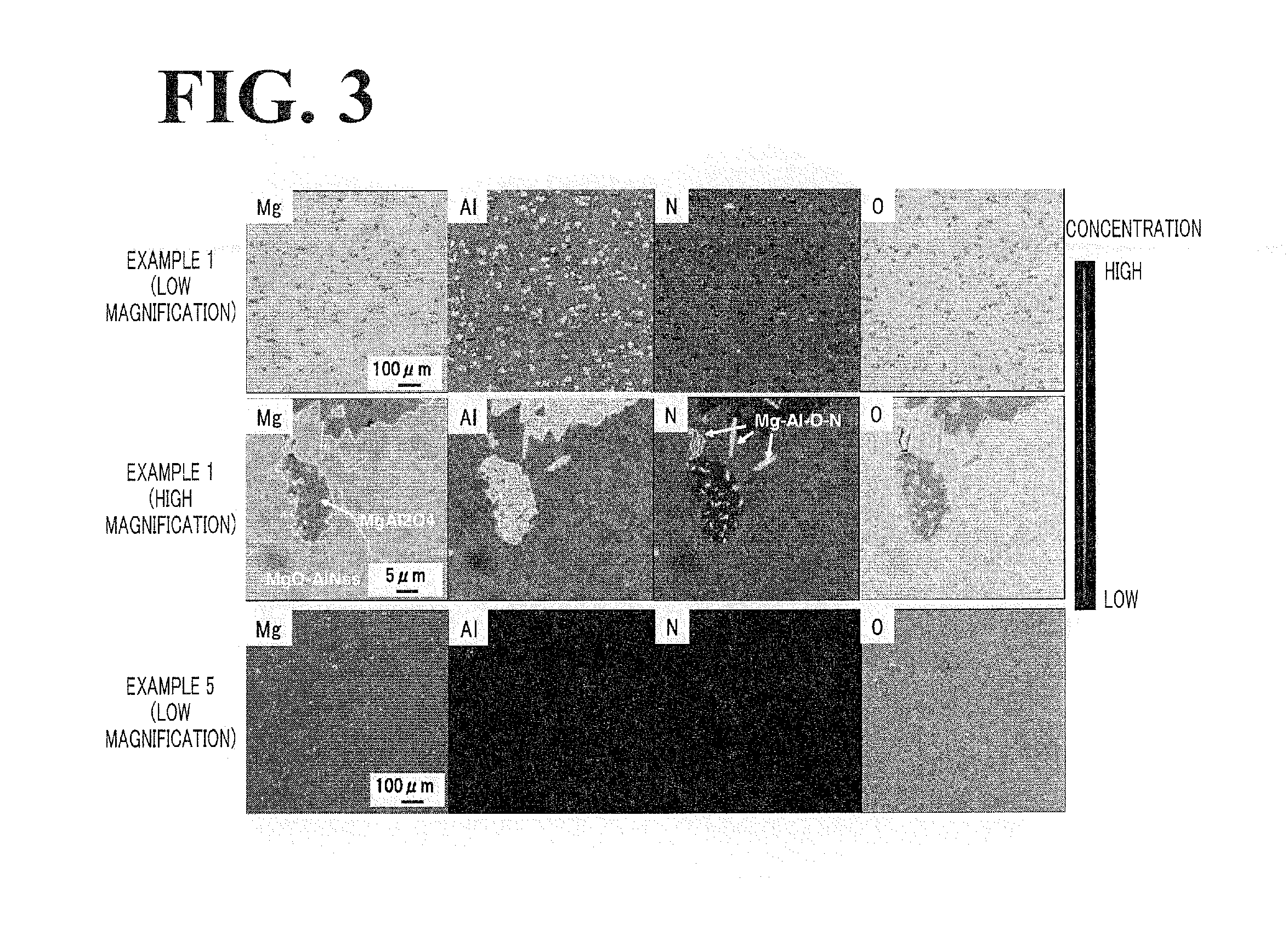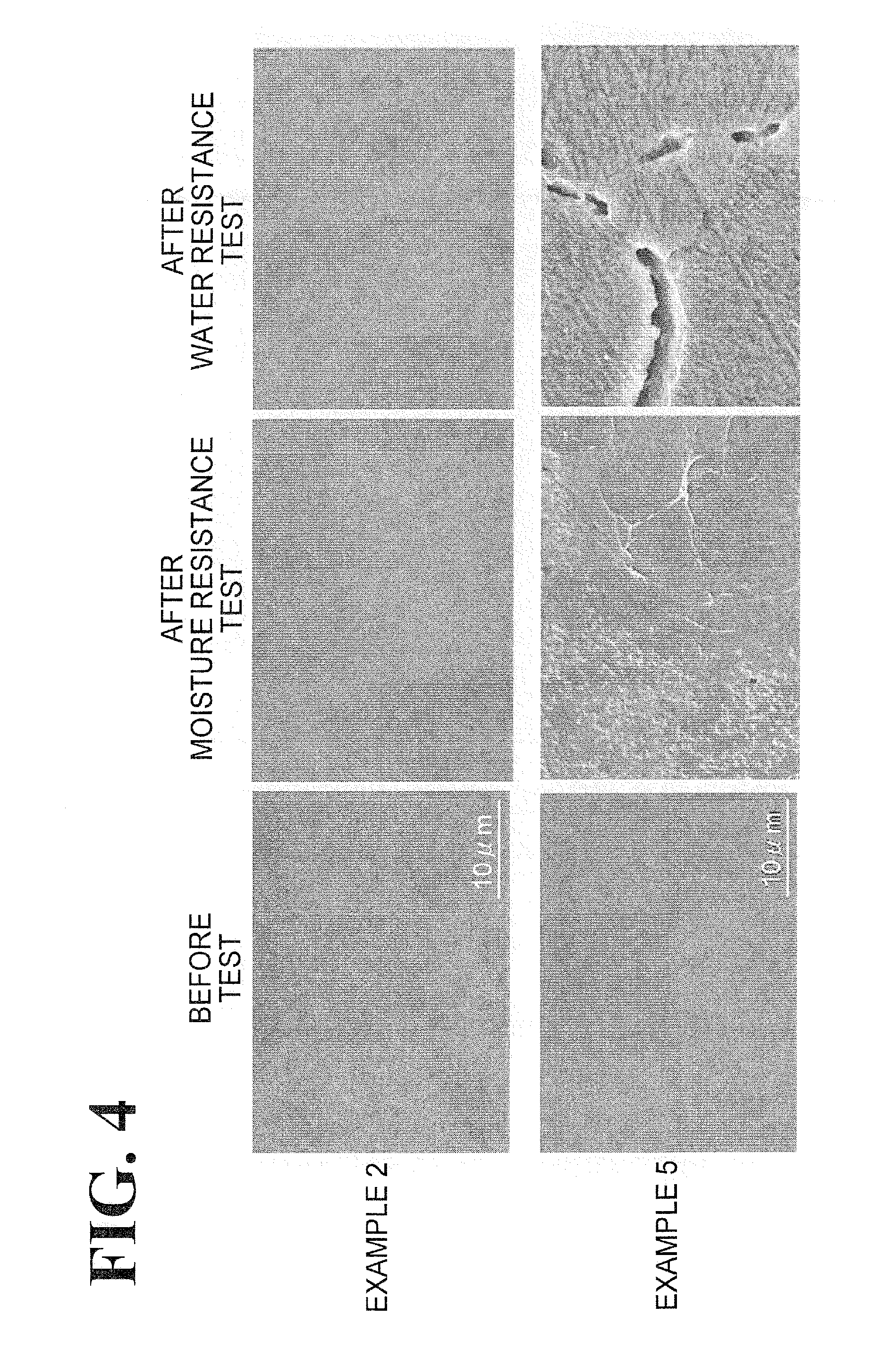Ceramic material, member for semiconductor manufacturing equipment, sputtering target member and method for producing ceramic material
- Summary
- Abstract
- Description
- Claims
- Application Information
AI Technical Summary
Benefits of technology
Problems solved by technology
Method used
Image
Examples
examples
[0035]Preferred application examples of the present invention will be described below. In Experimental Examples 1 to 16, as raw material MgO, raw material Al2O3, and raw material AlN, commercial items each having a purity of 99.9% by mass or more and an average particle size of 1 μm or less were used. In Experimental Examples 17 to 28, a commercial item having a purity of 99.4% by mass and an average particle size of 3 μm was used as raw material MgO, a commercial item having a purity of 99.9% by mass and an average particle size of 0.5 μm was used as raw material Al2O3, and a commercial item, having an average particle size of 1 μm or less, the same as that used in Experimental Examples 1 to 16 was used as raw material AlN. Here, with respect to raw material AlN, an oxygen contamination of about 1% by mass is inevitable. Thus, the foregoing purity is a value of impurity elements excluding oxygen. Experimental Examples 1 to 4, 7 to 17, 21, and 23 to 28 correspond to examples of the ...
experimental examples 1 to 3
Preparation
[0036]Raw material MgO, raw material Al2O3, and raw material AlN were weighed in amounts (% by mass) described in Table 1. These materials were wet-mixed for 4 hours in a nylon pot with alumina balls each having a diameter of 5 mm using isopropyl alcohol as a solvent. After the completion of the mixing, the resulting slurry was taken out and dried at 110° C. in a stream of nitrogen. Then the mixture was passed through a 30-mesh sieve to provide a mixed powder. The ratio by mole of Mg / Al of the mixed powder was 2.9.
Compacting
[0037]The mixed powder was subjected to uniaxial pressing at 200 kgf / cm2 to form a disk-like formed article having a diameter of about 35 mm and a thickness of about 10 mm. The formed article was accommodated in a graphite mold for sintering.
[0038]The disk-like formed article was subjected to hot-press sintering to provide a ceramic material. The hot-press sintering was performed at a pressing pressure of 200 kgf / cm2 and a sintering temperatur...
experimental example 4
[0039]A ceramic material was prepared as in Experimental Example 1, except that the sintering temperature was 1650° C.
PUM
| Property | Measurement | Unit |
|---|---|---|
| Percent by mass | aaaaa | aaaaa |
| Percent by mass | aaaaa | aaaaa |
| Percent by mass | aaaaa | aaaaa |
Abstract
Description
Claims
Application Information
 Login to View More
Login to View More - R&D
- Intellectual Property
- Life Sciences
- Materials
- Tech Scout
- Unparalleled Data Quality
- Higher Quality Content
- 60% Fewer Hallucinations
Browse by: Latest US Patents, China's latest patents, Technical Efficacy Thesaurus, Application Domain, Technology Topic, Popular Technical Reports.
© 2025 PatSnap. All rights reserved.Legal|Privacy policy|Modern Slavery Act Transparency Statement|Sitemap|About US| Contact US: help@patsnap.com



